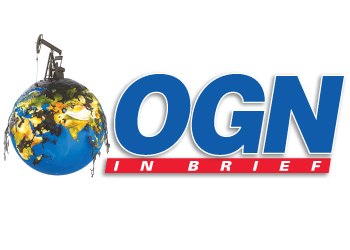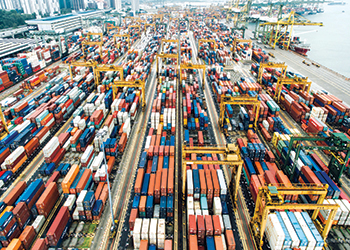
 Shipping/logistics operators are crucial links in the O&G supply chain
Shipping/logistics operators are crucial links in the O&G supply chain
Shipping and logistics operators serve as crucial links in the oil and gas supply chain, in that they are responsible for moving goods, parts, equipment, and workers to the places where they are needed.
As such this is a particular area where African companies can stand out is in shipping and logistics.
Some African operators have found that oil and gas development can serve as the foundation of a successful business.
Universal Africa Lines Alliance (UAL Alliance), for example, began delivering cargo to West Africa in 1973 and has now established itself as a stable provider of professional cargo handling services, focusing on break-bulk and project cargoes for the oil and gas industry.
UAL Alliance moves cargo between the US Gulf of Mexico and Europe to West Africa and vice versa, and also offers intra-African service on the west coast of Africa.
UAL Alliance is an international firm, but it is also firmly rooted in Africa, as it serves ports in Ghana, Nigeria, Gabon, Equatorial Guinea, and Angola.
What’s more, it has also constructed the K5 Freeport and Oil Centre, its own logistics and supply base at the port of Malabo in Equatorial Guinea.
In doing so, it has helped to create additional jobs for the contractors and subcontractors that helped build the base, as well as the companies that now use the base.
Oil and gas exploration and development off the west coast of Africa has already kept UAL Alliance busy for nearly 40 years, and the company is looking to grow over the next few years.
It has said it hopes eventually to set up shop in East Africa — presumably, so that it can start offering the same kind of services and support to emerging hydrocarbon producers such as Mozambique, Tanzania, and Uganda.
As it does, it will not only be exploring new opportunities in the region, but it will also be creating new opportunities for local shipping agents and the local service providers that will build, repair, and maintain its delivery facilities and offices.
However, UAL Alliance is far from the only indigenous shipping and logistics firm in Africa seeing success in the oil and gas sector.
Other examples include Nairobi-based OML Africa Logistics and Luba Freeport, which provides oilfield equipment handling and transportation in Eastern Africa; Seabird Ghana, maritime logistics and oil and gas services provider for west Africa; and Petromarine Nigeria, a marine logistics services provider for Nigeria’s oil and gas industry.
African states are taking proactive steps to support successful oil and gas maritime logistics operations.
Senegal, for instance, is constructing a high-tech, operationally efficient ‘superport’ near Ndayane, 50 km southeast of Dakar.
The project, dubbed the ‘Port of the Future’, is part of the country’s energy sector expansion, launched after the discovery of approximately 450 billion cu m of natural gas.
What’s more, Senegal is taking steps to make sure that everyday people benefit from its growing maritime infrastructure by building local capacity.
Another positive example is Mozambique, which is developing a national strategy for a blue economy that addresses, in addition to fishing and aquaculture, the country’s extractives and hydrocarbon sectors. The plan will also include a regional plan for maritime security.
With a plan in place, hopefully followed by policies that support local entrepreneurs and capacity building, Mozambique OSPs will be in a strong position for success in maritime logistics.


















































































